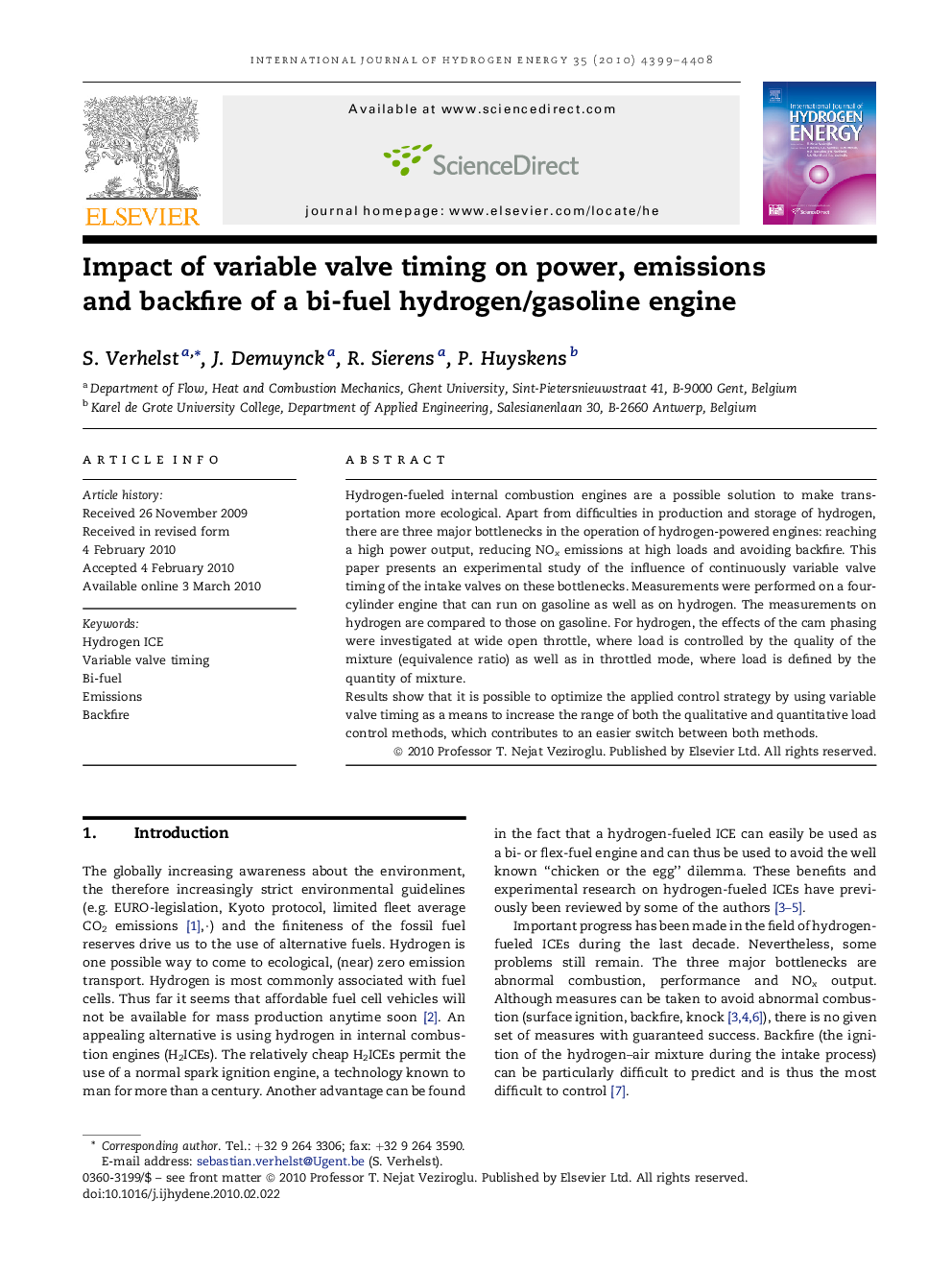| Article ID | Journal | Published Year | Pages | File Type |
|---|---|---|---|---|
| 1273142 | International Journal of Hydrogen Energy | 2010 | 10 Pages |
Hydrogen-fueled internal combustion engines are a possible solution to make transportation more ecological. Apart from difficulties in production and storage of hydrogen, there are three major bottlenecks in the operation of hydrogen-powered engines: reaching a high power output, reducing NOx emissions at high loads and avoiding backfire. This paper presents an experimental study of the influence of continuously variable valve timing of the intake valves on these bottlenecks. Measurements were performed on a four-cylinder engine that can run on gasoline as well as on hydrogen. The measurements on hydrogen are compared to those on gasoline. For hydrogen, the effects of the cam phasing were investigated at wide open throttle, where load is controlled by the quality of the mixture (equivalence ratio) as well as in throttled mode, where load is defined by the quantity of mixture.Results show that it is possible to optimize the applied control strategy by using variable valve timing as a means to increase the range of both the qualitative and quantitative load control methods, which contributes to an easier switch between both methods.
